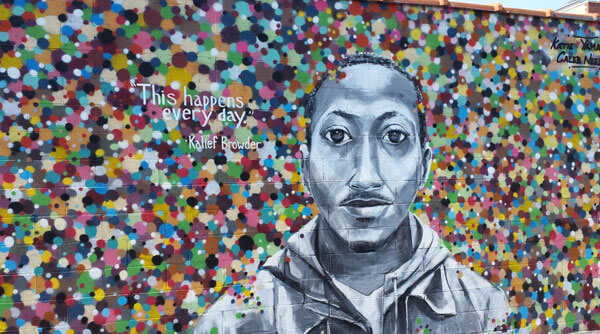By Bill Parry
New York is the only state other than North Carolina that treats all youth as adults when they are 16, regardless of the offense.
Kalief Browder was 16 years old when he was arrested for stealing a backpack and ended up spending the next three years on Rikers Island where he suffered frequent beatings by guards and inmates. Browder spent nearly 300 days in solitary confinement, without ever being charged — all because his family couldn’t afford the $3,000 bail. After his release, Browder committed suicide at his mother’s home in 2015.
Youth who serve time in adult prisons are 36 times more likely to commit suicide than those in juvenile facilities, according to Raise the Age New York, a coalition of more than 100 advocacy groups whose movement is gaining support from Gov. Andrew Cuomo, Mayor Bill de Blasio, City Councilman Rory Lancman (D-Hillcrest) and elected and community leaders across the state.
“Raising the age of criminal responsibility is New York State’s ultimate goal, but New York City can and must do more right now to mitigate the effects of charging 16- and 17-year-olds as adults,” Lancman said. “Though the city promised it would move young people off Rikers, there are still nearly 200 young people languishing there. It’s scientifically proven young people’s brains are still developing and they don’t fully understand the gravity of their actions. Instead of charging and trying teens as adults, the city should instead focus in increasing diversion programs so youth in every borough can participate. There is no excuse for delay when we have the power to make changes today.”
Lancman led a rally near City Hall last week before holding hearings in his Courts & Legal Services Committee. Writing in the New York Law Journal, Lancman mentioned Project Reset, a collaboration between the NYPD and the Center for Court Innovation which diverts 16- and 17-year-olds charged with first time, low-level, non-violent, non-victim misdemeanor offenses such as drug possession, trespassing and shoplifting pre-arraignment, from being prosecuted. These youths are arrested, brought to the precinct, and receive a desk appearance ticket with a nine-month return date, after which prosecutors and defense counsel decide on participation in a restorative justice diversion program. Provided completion is successful, the district attorney declines to prosecute with no public record of the arrest. Project Reset recently expanded to cover all of Manhattan and one precinct in Brooklyn.
“Public Reset should be expanded, both geographically and in terms of offenses covered,” Lancman wrote. “If it’s good enough for Manhattan and a precinct in Brooklyn, why not take it citywide? Thousands of 16- and 17-year-olds throughout the five boroughs are having their lives ruined for want of a vision for reform that includes their neighborhoods.”
Reach reporter Bill Parry by e-mail at bparr




































